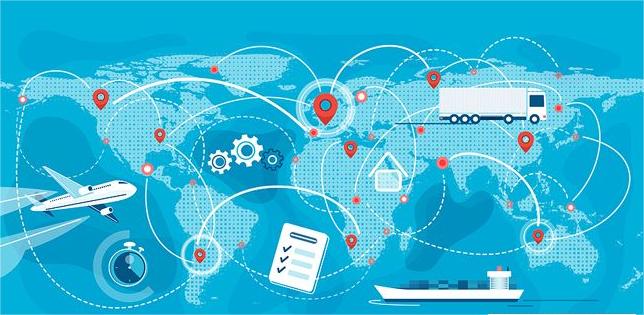South African logistics is adapting to the changing business environment
The global e-commerce revolution has transformed the business landscape, and logistics providers are riding these waves of change.
Here, we explore how the logistics industry is adapting to the changing business environment and supporting organisations in meeting customer expectations.
Origins of the E-Commerce Industry

The origins of the e-commerce industry can be traced back to placing orders from TV programmes and landline phones to sell almost anything.
The internet has transformed modern e-commerce in the way we acquire and interact with goods and services. We have become accustomed to buying anything we want online, including industrial, aerospace, automotive and healthcare transport solutions.
South Africa's logistics industry adapts to the challenges of the business landscape
South Africa is only the 42nd largest online shopping market despite being ranked 33rd by GDP per capita. This discrepancy can be attributed to several factors, inadequate road infrastructure and sometimes insufficient address data. Logistics companies that remain technologically innovative are looking to overcome these challenges by utilising GPS systems and robust delivery fleets.
In addition to this, in some communities there are issues of unequal access to reliable Internet connections, limited levels of digital literacy, and low rates of technology adoption, all of which impede the growth of e-commerce and logistics.
Opportunities

Logistics is an enabler of e-commerce. According to Knight Frank, a logistics consultancy, transport costs account for 50 to 75 per cent of the retail price of goods. With an estimated 5 billion internet users, the e-commerce sales sector will be worth $5.7bn in 2022, which represents a huge percentage of the total value of the e-commerce industry.
Logistics and e-commerce have developed a symbiotic relationship and created a great user experience - from the click of a mouse at the online checkout to the fulfilment of an order at the customer's chosen delivery location. The growth of e-commerce provides a unique opportunity for SMEs to not only drive sales, but also position themselves for long-term success - although it must be recognised that competition is fierce.
As consumer expectations continue to evolve, SMEs that rely on logistics service providers must be able to offer a cost-effective service that combines convenience with speed. To this end, many are adopting innovative technologies to provide a more targeted shopping and transport experience and increase the chances of making a sale.


